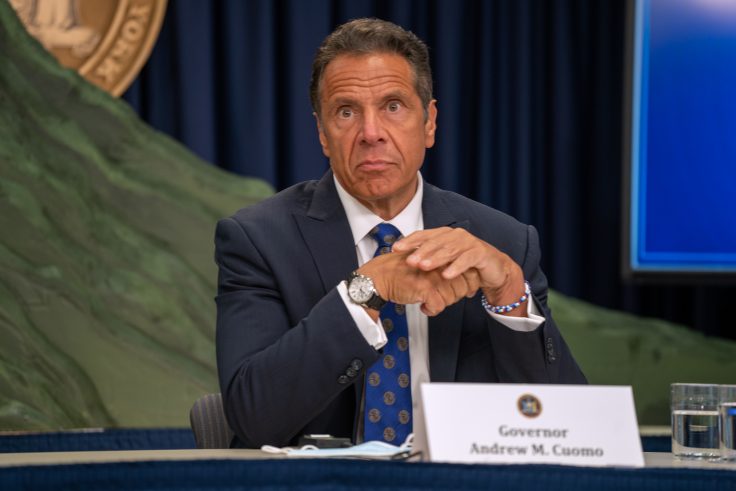Fallout from the Supreme Court's Thanksgiving decision blocking New York governor Andrew Cuomo's (D.) worship restrictions is spreading nationwide, as the justices tee up similar orders in other blue states for a legal reckoning.
The High Court since Dec. 3 has invoked the Cuomo ruling to erase decisions favoring public health authorities over the faithful in California, Colorado, and New Jersey. In each case, the justices told a lower court to have a second look at the contested rules, then follow their lead in the New York case.
Cuomo's church-capacity limits were a dramatic turning point for legal challenges to pandemic policies. The order looked especially vulnerable to a lawsuit since Cuomo had publicly singled out Orthodox Jews after a spike in transmission. An initial version of his order did not include criteria for triggering restrictions, feeding perceptions that the governor was targeting the Orthodox. Those weaknesses made the case an ideal vehicle for the Court's emboldened conservative wing to set a new course for constitutional challenges to public health guidelines.
Some lower courts recognized as much without prodding from the justices.
"The Supreme Court's recent decision in Roman Catholic Diocese of Brooklyn v. Cuomo arguably represented a seismic shift in Free Exercise law," Ninth Circuit Judge Milan Smith wrote in a Tuesday decision declaring Nevada's church attendance cap unconstitutional.
The Supreme Court's new direction is an abrupt departure from its initial attitude toward pandemic-related lawsuits. With Chief Justice John Roberts in control, the Court first rebuffed a challenge to pandemic-related worship restrictions in May. In a separate solo opinion, Roberts said the courts shouldn't interfere with policymakers as they race to contain the coronavirus.
"When [state] officials undertake to act in areas fraught with medical and scientific uncertainties their latitude must be especially broad," Roberts wrote. "They should not be subject to second-guessing by an unelected federal judiciary which lacks the background, competence, and expertise to assess public health and is not accountable to the people."
Though the opinion barely ran two pages, it had widespread practical consequences. Throughout the summer and into the fall, federal courts cited Roberts's opinion to turn down dozens of challenges to COVID regulations. The plaintiffs in those cases ranged from Jewish overnight camps in New York to boutique fitness studios in Arizona.
"Although plaintiffs disagree with [New York health commissioner Howard Zucker's] conclusions that overnight camps present a dangerous setting for the transmission of the COVID-19 virus when certain precautions are taken, the court will not second-guess defendant on the wisdom or efficacy of his emergency measures to fight the spread of the COVID-19 virus," U.S. District Judge Glenn Suddaby wrote in a representative case, citing Roberts's opinion.
The May case was an emergency appeal decided on legal papers alone. Such disputes are part of the Court's "shadow docket," so called because they are resolved in secret. There are no public arguments and the justices usually do not give reasons for their decisions.
Whether shadow docket rulings automatically count as precedents that bind lower courts is an open question. Whatever the answer, the justices are making clear which opinion lower courts should heed in their recent orders underlining the Cuomo decision. Like May's dispute, the Cuomo case was a shadow docket appeal.
"It isn't clear that a shadow docket decision is precedential, but now the Supreme Court, and the Ninth Circuit, have treated the case as precedential," South Texas College of Law professor Josh Blackman told the Washington Free Beacon.
Governor Cuomo is reportedly under consideration for attorney general in the Biden administration, though he has denied interest in the post.
Cuomo's office did not return a request for comment.
